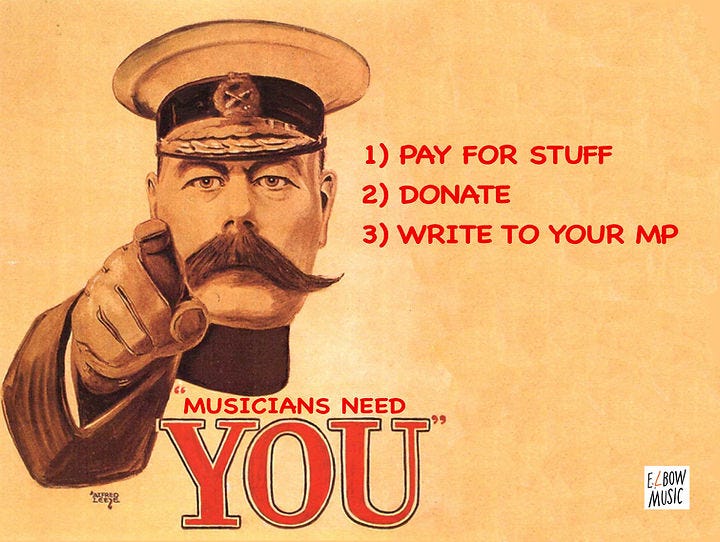7 ways to support musicians
If music has helped you through this crisis, there are many ways to show your gratitude
What has listening to classical meant to you during lockdown? How has it made you feel? Calmer? Happier? Less miserable, at least? Listening figures for classical music radio stations have shot up, and we can assume that at least some of this effect is because classical music offers something that people need right now: access to worlds beyond words, politics and crisis, dreamy escape, forgotten landscapes – or just a pretty background.
And yet music seems to be at the bottom of a long list of priorities for the Department of Culture, Media and Sport, which has allowed the opening of cinemas, amusement arcades, pubs and museums on 4 July, but no live music in concert halls. This inconsistent and illogical policy is devastating to the musicians who have been unable to make a living since lockdown and face existential threat: according to the Musicians’ Union 38 per cent of UK musicians haven’t qualified for government support and many are considering giving up music.
There are many musicians and organisations who are trying to make a difference through letters and delegations, but it’s not enough. In what seems to be a popularity contest, we need more support from people who don’t make a living from music but need it in their lives. If musicians have helped you get through the last three months, there are things you can do to show your support, both simple and involved, with and without spending money.
1) Write to the Secretary of State for Digital, Culture, Media and Sport, Oliver Dowden
Oliver Dowden has been tweeting about every sector other than music – I don’t know what his own personal tastes are, but music barely seems to be on his radar, so help him understand how important it is. Email him at the DCMS and tell him how vital music is to you: enquiries@culture.gov.uk. (He’s also on Twitter on @oliverdowden.) I emailed him with a specific suggestion to open up live music to small groups at least, to get chamber music concerts going.
2) Write to your local MP
It’s important for your own MP to understand how essential music is so they can represent your view in parliamentary debates – that’s the underlying principle of democracy. Find your MP here.
Disclaimer: as with writing to the DCMS, I can’t guarantee any response or that anyone will even read anything you write, but it’s still important. This is how democracy works and you should at least get a response from someone in government. Also – it feels good.
3) Pay for streams
If you watch any live streams of operas or concerts on YouTube and there’s a donate button at the end, click and give. You have watched a piece of art that would normally cost you a fair bit of money (not to mention car park charges) from the comfort of your own home. Many artists, technical staff and administrators worked hard to produce it. We all know that free content and streaming models have major problems that need to be addressed and I won’t go into the detail of that debate here, but if you sit down to watch a show and the creator is asking for payment, it’s a matter of personal integrity to give something.
4) Donate
If you are still working and can afford to, consider making donations to the orchestras and organisations you like. Show them that you value what they do and want them to be there at the end of the crisis.
5) Buy CDs
You may be listening to the radio or a subscription service, but it doesn’t necessarily help musicians. Buying CDs is a simple way to show artists that you appreciate them, puts money in their coffers and gives them a vote of confidence with their record companies.
6) Buy tickets
We don’t know when concerts will be back to normal – maybe not until next year – but many venues have already revealed their 2020/21 seasons. Have something nice to look forward to when this is all over by committing to a concert in, say, April 2021?
7) Support charities
There are specialist musicians’ charities that are doing amazing work. Help Musicians set up a hardship fund that is already depleted and needs replenishing. Some charities have been offering free music online music education, supporting students, but also giving musicians much-needed employment, for example the Nicola Benedetti Foundation and London Music Masters (and if you donate to LMM before 30 June, your donation will be matched through the Big Give). (I wrote about both of these here.) There may be other musical charities local to you, so it’s worth researching them.
These are tough times for everyone, but musicians are making it better for all of us. Show them what that means to you by helping them.




